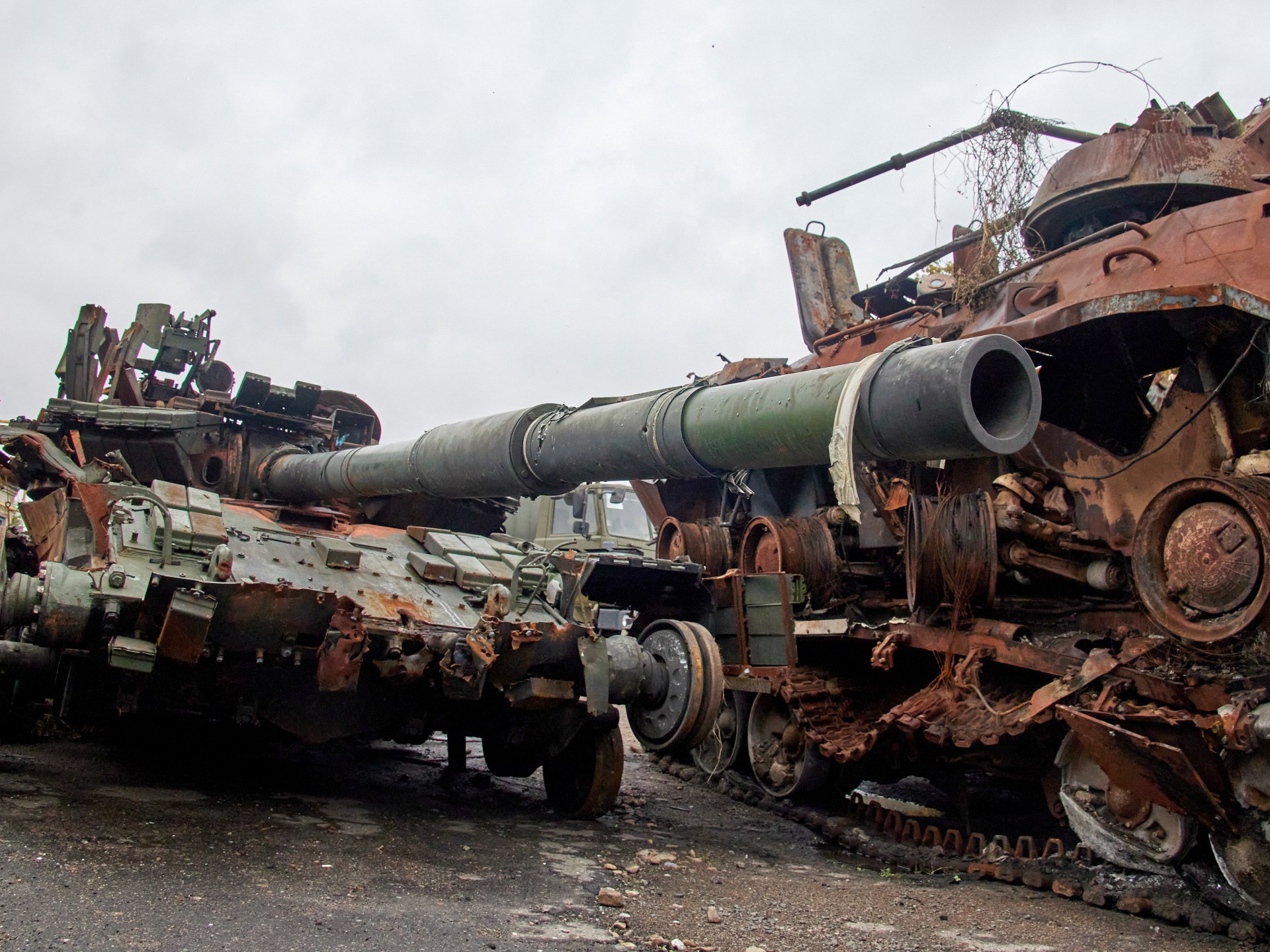A senior European official threatened to completely eliminate the Russian army if Russian President Vladimir Putin used nuclear weapons against Ukraine, while the German chancellor said that Putin was fighting what he described as a crusade against the West.
While Kyiv announced the success of its forces in repelling attempts to advance by Russian forces and Donetsk separatists in the eastern city of Bakhmut, Moscow confirmed its thwarting a Ukrainian attack in Kherson, while Russian missile strikes continued on dozens of Ukrainian cities and towns.
Kyiv said that Russian missiles targeted more than 40 Ukrainian cities, while Ukrainian shelling in the Russian Belgorod region bordering Ukraine led to the explosion of an ammunition depot, regional governor Vyacheslav Gladkov said Thursday.
"After the bombing of the Ukrainian armed forces, an ammunition depot exploded in a village in the Belgorod region," the governor said on Telegram, explaining that "according to preliminary information, there were no deaths or injuries."
These field developments come as the defense ministers of the North Atlantic Treaty Organization (NATO) concluded their meetings in Brussels by pledging to deliver advanced air defense systems to the Ukrainian army in the coming weeks.
But Ukrainian President Volodymyr Zelensky is demanding more because his army currently has only 10 percent of what it needs, he said.
In a related context, Moscow once again warned NATO against accepting Ukraine's accession request because this would lead to the outbreak of a third world war.
Crusade
German Chancellor Olaf Schulz accused Russian President Vladimir Putin of waging what he called an "all-out crusade" against the West and the rules-based international order.
On Thursday, Schultz said in a video recorded while participating in the "Advanced Governance" summit in Berlin, that the Russian war "is not only about Ukraine, but they (Putin and his aides) consider the war against Ukraine as part of a larger crusade."
"This is a crusade against liberal democracy, against the rules-based international order and against freedom and progress," he added.
Schultz's comments come in light of the escalation of the war in Ukraine after the Crimean bombing and the recent Russian strikes on Kyiv (Reuters)
He pointed out that this is "a crusade against our way of life, and against what Putin calls the collective West."
Schultz's comments come days after Russia launched a wave of missile strikes against Ukraine, following the bombing of the Kerch bridge linking Russia and Crimea, last Saturday.
Germany, along with the United States and Kyiv's European allies, provided batches of weapons, ammunition and financial support to Ukraine in the face of what they call Russia's "invasion" of its lands.
There was no immediate comment from the Russian side on the German chancellor's accusations.
European threat
In a related context, European Union foreign policy chief Josep Borrell threatened to completely eliminate the Russian army if President Vladimir Putin used nuclear weapons against Ukraine.
On Thursday, the European official stressed the seriousness of Western countries and the United States to take a strong military response against Russia if it struck Ukraine with a nuclear weapon.
"Putin says he is not cheating about the nuclear threat. He must understand that the countries that support Ukraine, the European Union and its member states, the United States and NATO, are also not cheating," Borrell said.
"Any nuclear attack against Ukraine will generate a response, not a nuclear one, but a strong military response that will eliminate the Russian army," he added.
Russian President Vladimir Putin has said on more than one occasion that he will take all measures to defend his country's interests, including the use of nuclear weapons if necessary.
Western leaders condemned Russia's threat to use nuclear weapons, and threatened it with dire consequences if it carried out this threat.
And since last February 24, Russia has launched a military attack in its neighbor Ukraine, which prompted capitals, led by Washington, to impose severe economic sanctions on Moscow.

